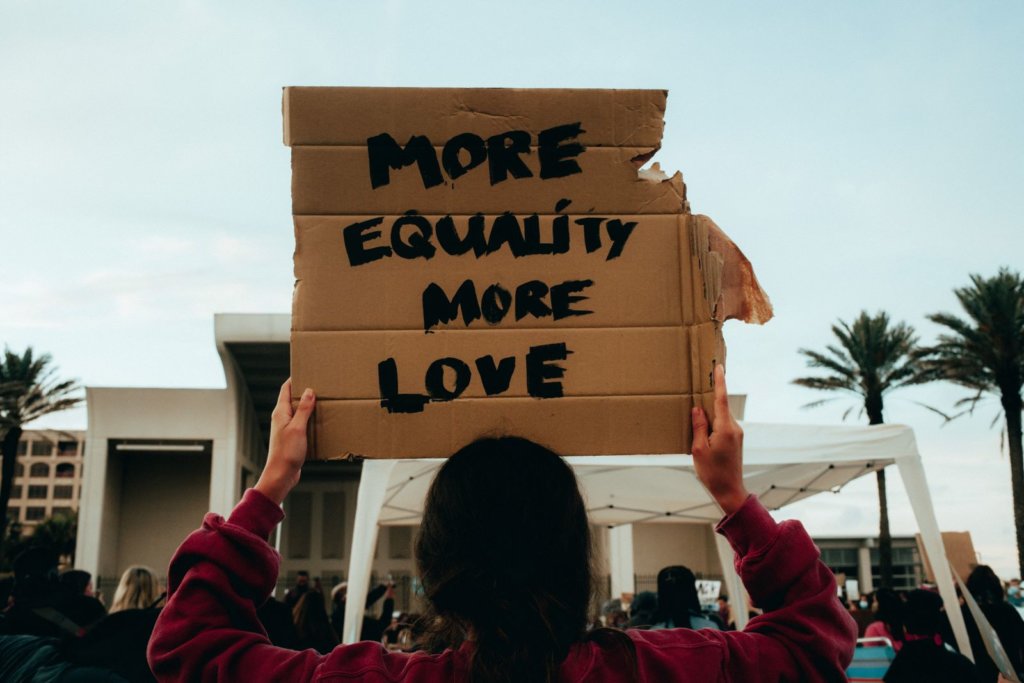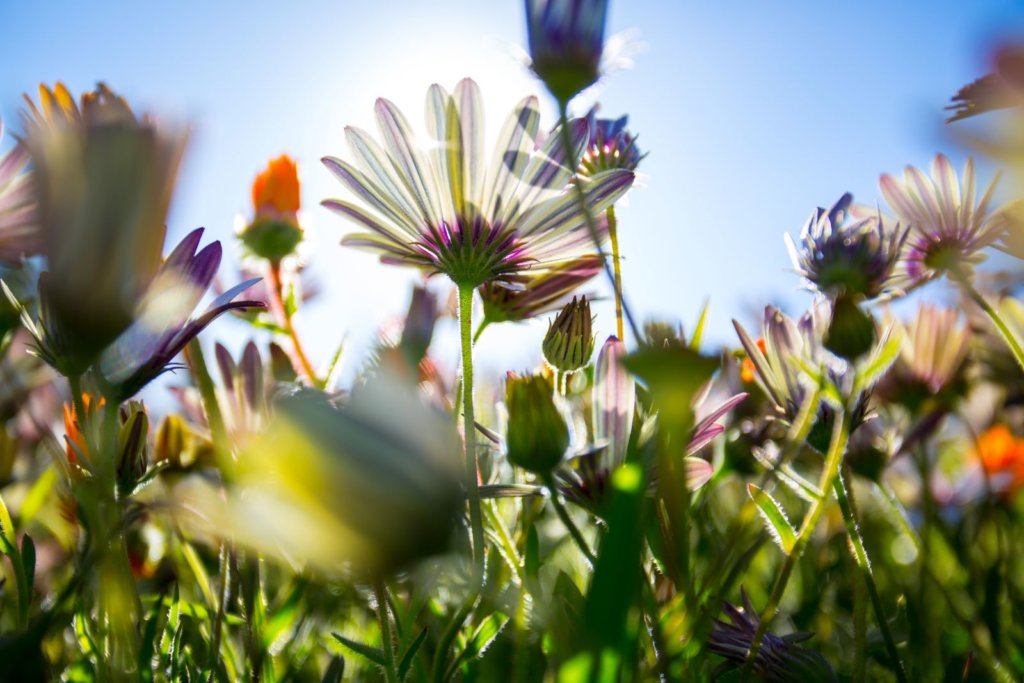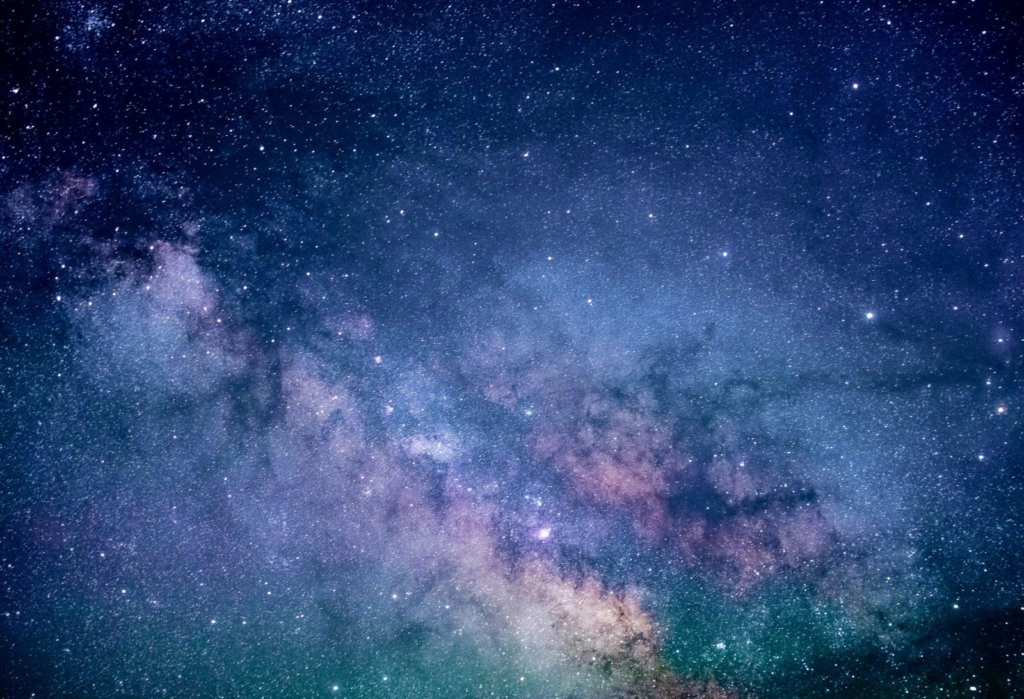My dad told me about a TV show where people try to be the last person to survive in the woods on their own for a chance at winning $500,000. The premise is interesting because it touches on the themes of competition, human versus nature, and also resourcefulness. I get the appeal. But what I don’t get is the lengths people will go to in order to win.
One contestant swam into a frozen lake in an attempt to catch some fish knowing she’d get hypothermia. She explicitly told the camera she knew that would happen. The woman could have tapped out of the show at any time and said, “You know what? The $500,000 isn’t worth it. Take me to the grocery store,” but she didn’t. She literally risked her life all for what? Money. Money that frankly won’t last very long considering the rate of inflation.
Desperation is real and it pushes people to do things they otherwise wouldn’t. But this woman wasn’t a member of the Donner party, starving to death in the middle of winter. She was in a situation of contrived and self-inflicted desperation. I don’t fault this woman; I don’t know her or her story. She made her choice freely. No, instead what I fault is the toxic worldview pervading our society that lauds this sort of decision: materialism.

I agree! More equality, more love! Photo by Cody Pulliam on Unsplash
My favorite summary of materialism comes from a friend who says, “Under materialism, only matter matters.” Exactly. In a materialistic society, money and possessions are more important than love, community, and life. Not everyone is willing to become hypothermic for cash, but over and over again, we demonstrate human life isn’t worth more than money in indirect ways: child labor, exploitative working conditions, polluting the environment, etc. We are poisoning and killing one another for something ephemeral.
I’m not here to say money is unimportant because that’s a lie. It is important, but it’s not the only thing that matters. The worldview I use stems from tantra and my friend sums it up by saying, “Under tantra, everything matters.” What he means is matter matters. People matter. The environment matters. Spirituality matters. Under tantra, you take it all into account. Money is not the bottom line every time.
We take it for granted that materialism is the only way to operate in the world but it’s not. It’s a belief system and belief systems can change. A little religious inspiration for you that’s appropriate considering this time of year: Hanukkah isn’t really a story about oil lasting for eight days. It’s the celebration of people unifying against oppression and winning.
A quick recap: Judah and the Maccabees revolted against Syrian King Antiochus in 160 BCE. He enacted a series of harsh decrees against the Jews, including forcing them to give so much of their crops to the Syrian ruling class, the Jews had trouble feeding their families. Jewish worship was forbidden; scrolls were confiscated and burned. Sabbath and dietary laws were prohibited under the penalty of death. This small group of Jewish rebels fought against an army of thousands of men and won.
My rabbi, Michael Lerner, says, “Hanukkah is not just about having a response to the consumption craze around Christmas, it is about affirming a different worldview, a hopeful worldview. [It’s] about replacing cultures of domination with a culture of love and justice.”
We already have examples of worldviews toppling. We know it can be done because it’s been done before. We don’t need to keep operating as if materialism is the only game in town because it’s not. There’s another way to live, a better way. One in which we recognize the importance of bodies, minds, and spirits.
I dream of a world where we topple materialism. A world where we say, “No, materials are not the most important thing in existence.” A world where we recognize the existential value of all life forms. A world where we replace a culture of domination with one of love and justice.
Another world is not only possible, it’s probable.
I keep thinking about the murders in Atlanta and what I can personally do other than what I’ve already done, which is to donate and speak out. What came to mind is writing on worldview. How you view the world is how you act in the world. If other people are less than, inferior, objects that exist solely for your pleasure, then it’s not hard to murder them or hurt them in some other way. The reverse is also true: If other people are equal to you, fellow human beings that have the same needs that you do, you’ll treat them with respect. Furthermore, the reality is we all need each other, we all have something special to give.
This concept is illustrated so beautifully in Gary Ferguson’s book The Eight Master Lessons of Nature. He writes about how each wildflower has its own strength that contributes to the whole. Some wildflowers have deeper roots that help them survive during drought periods and others have waxy leaves that allow them to contain moisture.

Variety is the spice of life for nature too! Photo by Gaston Roulstone on Unsplash
Every flower has a different survival strategy and together they keep the ecosystem flourishing. If all the flowers on a steep mountain slope perish, the soil would erode, the butterflies would flee, the elk would wander away, and the area would become a dead zone. Living among diversity is what keeps the area healthy. In other words, homogeneity spells death. That’s true not only for plants, but for humans too.
My spiritual teacher says:
“You should remember that human life is not like a single flower; it is like a bouquet or a garden of flowers blooming with many varieties of flowers. And this variety of blossoms adds to the collective beauty of the garden. Had there been only magnolia graniflora or one variety of rose only blooming in the garden, although that single flower might be very attractive, still the garden as a whole would not be very lovely. A garden is all the more beautiful because of the flowers of various types and hues.
“Similarly, we human beings must also move forward while maintaining a harmonious adjustment among all the diverse aspects of individual and collective life. We must discover unity in the midst of colorful diversity. Not only will we realize this in the future, we are realizing it even today, and thus we have been able to consolidate even our limited power. And you know that even a little power, if consolidated, becomes stronger than even a mighty force.”
We are stronger together and we are stronger diversified. There’s room not only for one kind of person, but for all people. And instead of trying to assert dominance of one group or another, let’s reminder that all of us together are what keep this planet and our society alive.
I dream of a world where we treasure the contributions that we each make. A world where we value diversity. A world where we understand we are stronger because of it. A world where we remember what the wildflowers teach us.
Another world is not only possible, it’s probable.
Last week I wrote about the perspective Bhutan has taken in this pandemic that everyone is a part of one big family and how that’s played out in terms of the country’s policies. Here in the U.S., the more prevalent perspective is one of rugged individualism and separateness. Instead of viewing all of us as being in this together, we operate from a materialist worldview that says only matter is real and humans are alienated from not only each other, but everything.
From this perspective, consciousness is a “strange aberration that happens as an accidental byproduct of chemical interactions,” to quote my friend Amal Jacobson. The materialist worldview says the cosmos doesn’t have any consciousness and thus it becomes much easier to objectify, well, everything. Nature doesn’t have any value beyond its utilitarian value. A tree is worth more dead than it is alive. Furthermore, nature becomes something “out there” that we go to. We see this in the way we, me included, talk about nature. “I was out in nature in this weekend” is a common phrase we all say.

We are this and this is us. Photo by Jeremy Thomas on Unsplash
However, “out in nature” implies we’re separate from nature, that somehow we’re not included in this vast universe. The phrase also implies that we could ever get away from nature. That’s not possible even in the densest of cities because the very ground we stand on is nature, and furthermore, we are natural too.
Rebecca Solnit speaks to this in a Sierra magazine article when she writes, “It took the pervasiveness of radioactive fallout in the 1950s and pesticides in the 1960s to wake conservationists up to the fact that nothing is separate, and you can’t truly protect a place by setting it apart.”
You can’t protect a place by setting it apart because it’s impossible to truly be apart. That’s why there’s so much emphasis on intersectionality these days. We all intersect in various ways. Environmental justice goes hand in hand with social justice, for instance, because who typically pays the price for environmental destruction? Black, brown, and indigenous people. This cosmos is a spider web and if you pull on one thread, it vibrates the rest of them.
I have a friend who acknowledges this every morning in his prayers. He says, “I am eternally grateful to be an integrated particle in the infinite universe of your wisdom and will, and to live in your abundance and prosperity receiving your guidance, strength, mercy, and protection.” Gorgeous, right? I like the whole prayer, but in particular, I can’t help but wonder what would the world be like if we all felt this way? That we are an integrated particle that is only one part of a whole? The reality is materialism is a belief system just like what I’m proposing is also a belief system. Which one leads to a happier, healthier society? I think the answer is already obvious.
I dream of a world where we recognize no one is separate from one another. A world where we realize a thread of connection links not only human beings, but all beings. A world where we change our worldview and recognize we are an integrated particle of this vast universe and behave accordingly.
Another world is not only possible, it’s probable.